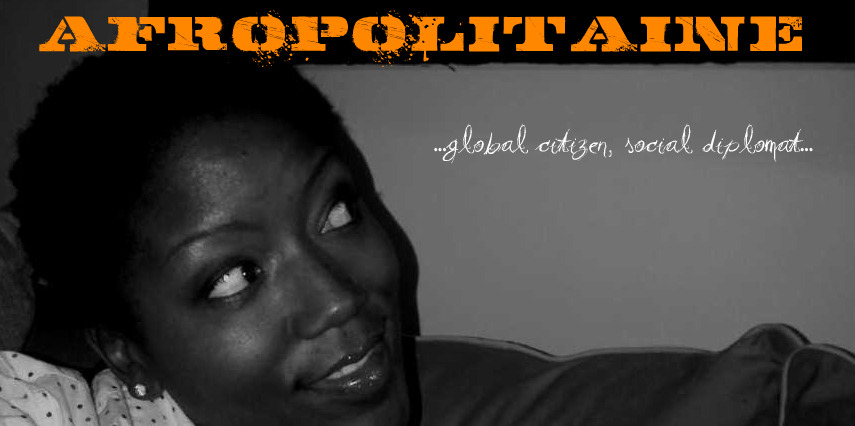This is my attempt to understand and possibly appropriate something I've observed in the recent wave of "Africa is the future" and expressions of hope/positivity/excitement about Africa as seen in art around us.
Many of us [Africans] formed and learned our ideas of what it means to be African from Western imaginations of us. We know/think we are exotic and special because the Ndebele people are well known for their neck rings and geometric patterns on houses, because our scars are so fascinating as Dinka warriors, because our men Fulani men are described as beautiful since they wear heavy makeup and are into their looks because we read and were told so. After that we learnt this was all backwards and uncivilized. This all happened both fast an inconspicuously we never got to form our own identities of ourselves. We realized who we were and are or had become too late. How special we all are indeed, but thank goodness for our opportunities now to tell our own stories and show who we are according to us. We get to show and tell ourselves counter to the previous narrative, but that means we are ultimately still tied to the original.
"Afrofuturism is a post-modern deconstruction of a Western European meta-narrative" - Raimi Gbadamosi (Afrofuturism as a New Conciousness)
So for people who do not know Africa and are not connected to her, how does this imagined African future, as formed in opposition to the European perceptions and projections, connect to a practical reality of Africa? Especially in America where the Black body and sense of self is not only so long removed from the continent, but is always positioned as a minority and under very different race relations than the majority of the Black identity in Africa?
At the end of the day, in questioning it, I do understand and appreciate the importance and need for an independently formed sense of self. One that empowers and allows for the navigation of the present more hopefully allowing for positively imagined futures. Whether we are on the continent or in the diaspora by choice or not, we all originally learnt who we are through western narratives and in relearning and recreating it cannot fully separate.
At the beginning of Black History Month I attended the opening night of an exhibit at the Goethe Institute (German Cultural Center). I was intrigued by first the connection between Blackness and German culture and curiosity about what and how this imagined future of Africa was going to be presented. I'll share my best picks from each of the three featured artists with blurbs:
Tradition wasn't tradition from the beginning. It too, at a point was of the future and different from the present. Some of these works left me wanting, but that may be because I'm very critical, defensive and corrective when it comes to African identities and appropriation therefore. I will say though, Africa is in and belongs to the world and whoever wants to imagine its future can and should. Africa's future after all is and will only be as bright as we are capable initially of imagining.
______________
*@afropolitaine*
At the beginning of Black History Month I attended the opening night of an exhibit at the Goethe Institute (German Cultural Center). I was intrigued by first the connection between Blackness and German culture and curiosity about what and how this imagined future of Africa was going to be presented. I'll share my best picks from each of the three featured artists with blurbs:
Daniel Kojo-Schrade is a German-Ghanaian who was born and raised in Germany. The face with the glasses was visible in several of his pieces and he later pointed out the repetition of umbrellas as well. This is his imagination and looking at it one can take things literally or extract many metaphors for the future. To me, being a Zimbabwean, I saw Mugabe in the face with the glasses and with the umbrella to shield him from the rain or heat to protect Africa's future [Afrofuturism and all].
The artist himself.
Bernard Akoi-Jackson was the only continental African artist out of the 3, but unable to attend the event (suspecting visa issues). His staged and costumed photographs featuring the same man touch on the subject of slavery and colonialism. Fittingly [ergo] touching on religion, guns and identity. My only issue is as creative as it was it felt the most unoriginal. I am a huge fan of Yinka Shonibare (Nigerian) and having seen Samuel Fosso's (Cameroonian) photography at an Alliance Francaise exhibit in Zimbabwe before this made it hard to appreciate this actually excellent display.
Adejoke Tugbiyele who is a Nigerian-American (New Yorker) artist whose 3 works included an installation, a short film and an interpretive dance piece. Tugbiyele is also a queer activist and has been awarded, featured and travels frequently for her work. Her architecture background in the various materials used and quite literally constructed into expressive bodies of work. The dance that is her work featured her partner.
____________
______________
*@afropolitaine*









No comments:
Post a Comment